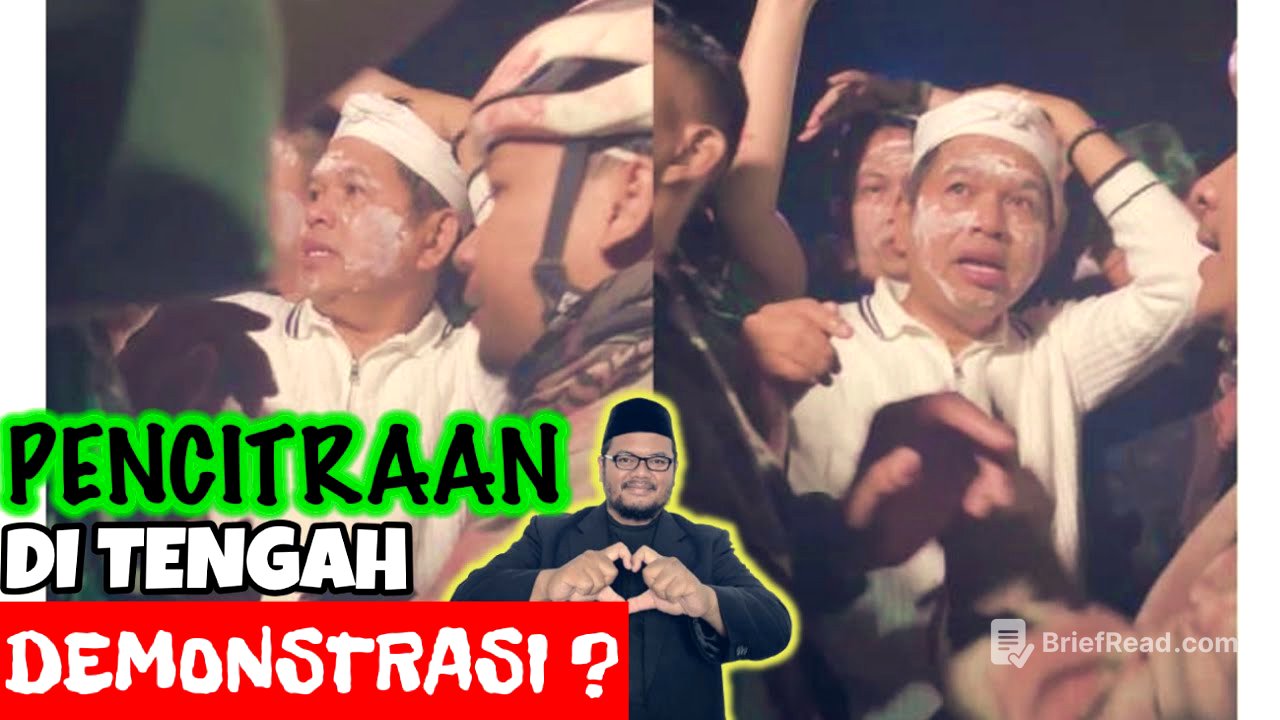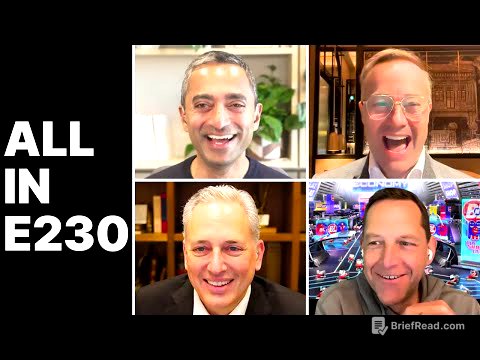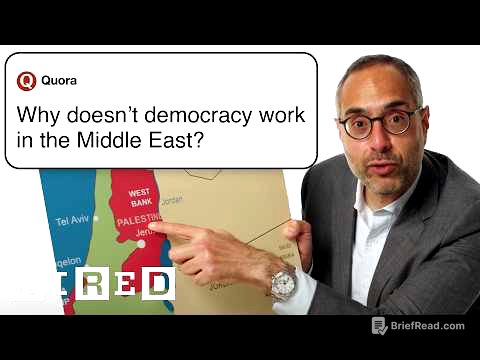TLDR;
The video explores why it's difficult for Indonesian officials to connect with the common people, even though it could boost their popularity. It identifies key reasons such as the sense of independence wealth and power bring, the perception of being above the law, the isolating effect of constant preferential treatment, and the tendency to associate only with similar elites. The video also touches on how Indonesia's feudalistic society exacerbates the issue, leading to increased arrogance among officials.
- Wealth and power create a sense of independence, reducing the need for connection with ordinary people.
- Affluent and influential individuals often feel they are above the law, diminishing their regard for rules and common courtesy.
- Constant preferential treatment inflates egos, making it difficult for officials to relate to everyday citizens.
- Elites tend to isolate themselves within affluent circles, avoiding interaction with those of lower socioeconomic status.
- Indonesia's feudalistic society reinforces the idea that the wealthy and powerful are entitled to special privileges, increasing arrogance among officials.
Introduction [0:00]
During times of unrest in Indonesia, public officials often face criticism and ridicule. However, some officials, like Sri Sultan and Kang Dedi Mulyadi (KDM), have garnered appreciation and sympathy despite controversies. KDM, despite being labeled as someone who creates content for personal branding, was seen among demonstrators, using toothpaste to counter the effects of tear gas. His ability to connect with the people is attributed to his down-to-earth nature, which allows him to communicate effectively and be well-received by the public. While many recognize that being close to the people is beneficial for politicians, most officials don't do the same because being close to the people is difficult, and even pretending to be close to the people is very difficult.
Psychology of Officials [3:37]
According to academic Paul Pif's research in PNAS, wealthy and powerful individuals find it challenging to live among and connect with ordinary people, and they also tend to be dishonest in their actions and choices. This is because they have minimal dependence on others. Ordinary people are more inclined to be friendly to build connections for security within a community. In contrast, the wealthy and powerful experience the opposite, leading to unfriendliness and a reluctance to associate with ordinary people. Leaders who connect with the people are mentally strong, overcoming the typical mindset of those in power. Connecting with the people is difficult, and even pretending to do so is a challenge.
Being Above the Law [6:04]
Wealthy and powerful individuals often believe they are above the law and justice, so they don't need to be friendly or follow protocols. Laws exist to uphold justice, typically demanded by the losing or weaker parties. Those who are strong may prefer not to have laws, wanting to determine right and wrong based on their authority. Consequently, those in power disregard rules, act dishonestly and arbitrarily, feeling they can bypass the law. This mindset makes it difficult for them to connect with the people. Examples include corrupt officials displaying arrogance, using escorts, and demanding special treatment, as they see themselves above justice and the law.
Constant Preferential Treatment [8:37]
Wealthy and powerful individuals find it difficult to connect with the people because they are constantly treated with excessive respect from the beginning. Unlike interactions with friends, people tend to act formally and respectfully towards the rich and famous, making them feel like gods who deserve special treatment. This consistent behavior shapes their perception and makes it difficult for them to relate to ordinary people. The basic principle of morality dictates that our behavior towards others should be determined by their character, morals, and contributions, not by their status, wealth, or power.
Isolation and Exclusive Circles [10:44]
Wealthy and powerful people often isolate themselves and associate only with similar elites, avoiding contact with those of lower socioeconomic status. As someone becomes wealthier and more powerful, protocols become stricter, making it harder to meet and talk with them. When wealthy individuals encounter poor people, they are often approached for money and assistance, which can be uncomfortable. This leads them to create exclusive groups of people who are similar to them. Many wealthy and powerful people live in exclusive neighborhoods and offices, rarely interacting with those from lower social classes due to differing habits.
High Standards and Comfort [12:38]
Wealthy individuals are accustomed to ease and high standards, making them quick to anger when faced with lower standards. For instance, poorer couples may stay together despite frequent arguments due to mutual dependence, whereas wealthier couples find it easier to separate because they are independent. Wealthy people avoid connecting with the people because they dislike the criticism, gossip, and jokes, preferring to isolate themselves. To connect with the people, wealthy officials must confront their ego. Even figures like Megawati and her daughter have made condescending remarks about marrying someone like a meatball vendor, highlighting a sense of superiority.
Feudalism in Indonesia [15:51]
In developed countries, officials and ordinary people are relatively equal, with examples of officials using public transport and having modest meetings. Even seemingly arrogant figures like Donald Trump engage with criticism and use common language. However, in Indonesia, society is feudalistic, with the wealthy and powerful seen as having inherent privileges, leading officials to become more arrogant. It's important to provide constant social control and show them that we can be equal in human rights and education, compensating for their shortcomings.









